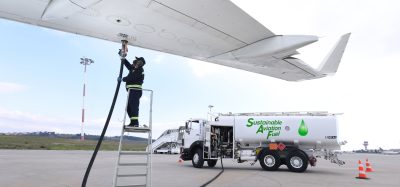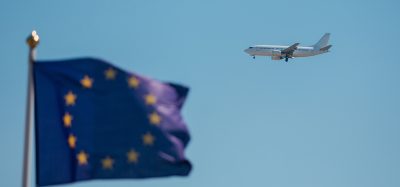Campaign to cut airport carbon emissions makes great strides according to annual report
- Like
- Digg
- Del
- Tumblr
- VKontakte
- Buffer
- Love This
- Odnoklassniki
- Meneame
- Blogger
- Amazon
- Yahoo Mail
- Gmail
- AOL
- Newsvine
- HackerNews
- Evernote
- MySpace
- Mail.ru
- Viadeo
- Line
- Comments
- Yummly
- SMS
- Viber
- Telegram
- Subscribe
- Skype
- Facebook Messenger
- Kakao
- LiveJournal
- Yammer
- Edgar
- Fintel
- Mix
- Instapaper
- Copy Link
Posted: 19 October 2017 | International Airport Review | No comments yet
Momentum is growing behind Airport Council International’s Carbon Accreditation scheme with the number of participating airports around the world up 21 per cent on last year, and African subscribers up by more than three times.


SCHEMING: Airports certified at ACI World & Africa Annual General Assembly (WAGA) hosted by Airports of Mauritius Co
In the fight against climate change, it is easy to get downhearted. But Airports Council International‘s Carbon Accreditation Annual Report 2017 may buck the trend.
It shows that more airports than ever are signing on to the scheme, a move which means they are taking responsibility for their own emissions and acting accordingly.
The scheme assesses each airport’s commitment and progress towards cutting emissions and grades them accordingly. The grades range from 1, which is means the airport is ‘mapping’ their emissions and putting plans into place to manage them, to 3+, airports that are doing all that is possible to slash their carbon footprint, including bringing in third parties to help.
This year’s report shows an increase of subscribers from 156 to 189 airports, covering 38.1 per cent of global passenger traffic. Of the 189 airports, 64 per cent renewed their participation at the same level and 16 per cent were up graded. Only 1 per cent went down. The remaining 19 per cent represents the new additions.
Angela Gittens, Director General, ACI World said: “This past year has seen continued engagement from airports – with 36 new applications to Airport Carbon Accreditation and more airports reaching a higher level of certification within the programme.
“As a result, we are able to announce that we now have 201 airports participating in Airport Carbon Accreditation. These airports welcome over 39.6 per cent of global air passenger traffic. To put that into context, that means more than 2.8 billion passengers now travel through airports certified at one of the 4 levels of the programme.”
Niclas Svenningsen, who heads the Climate Neutral Now initiative at the United Nations Framework Convention on Climate Change (UNFCCC) Secretariat in Bonn, Germany said: “People are aware of the public conversation about Climate Change between governments and the work underway to forge and implement policies that support a sustainable future, but effective climate action also relies enormously on an innovative and proactive private sector – and Airport Carbon Accreditation is a really good example of that.
“By providing a clear, yet ambitious framework that accommodates the multi-speed nature of airports’ efforts across the world, this is actively encouraging and stimulating a collective effort by the Global airport industry – one that is also engaging other aviation stakeholders to get involved as well. Something other industries and sectors would do well to try to foster.”
Participation growth in the African continent has been particularly remarkable – going from three airports in the program a year ago, to now 10 accredited airports. These airports welcome 28 per cent of African air passenger traffic.
An additional six US airports also became certified for the first time, and US airports were also major contributors to the overall reduction of CO2 emissions achieved last year – with Dallas Fort Worth becoming the first airport in the Americas reaching carbon neutral status. These achievements reflect the continued commitment of US airports to addressing climate change, despite the withdrawal of the US from the Paris Agreement.
Aeria’s Felix Houphouet Boigny Airport – the airport of Abidjan, Ivory Coast – also received its Level 3+ Neutrality certificate, distinguishing itself as the very first African airport to achieve carbon neutral status.
Related topics
Airport Carbon Accreditation (ACA), Airport development, Emissions, Regulation and Legislation, Sustainability
Related organisations
Airports Council International Europe (ACI Europe), United Nations Framework Convention on Climate Change (UNFCCC)


















